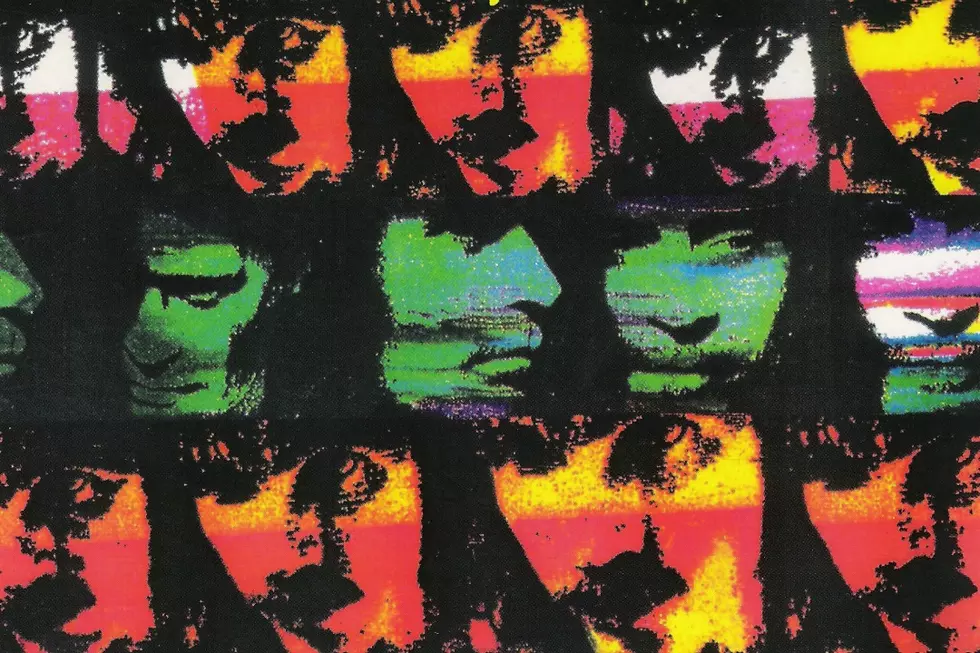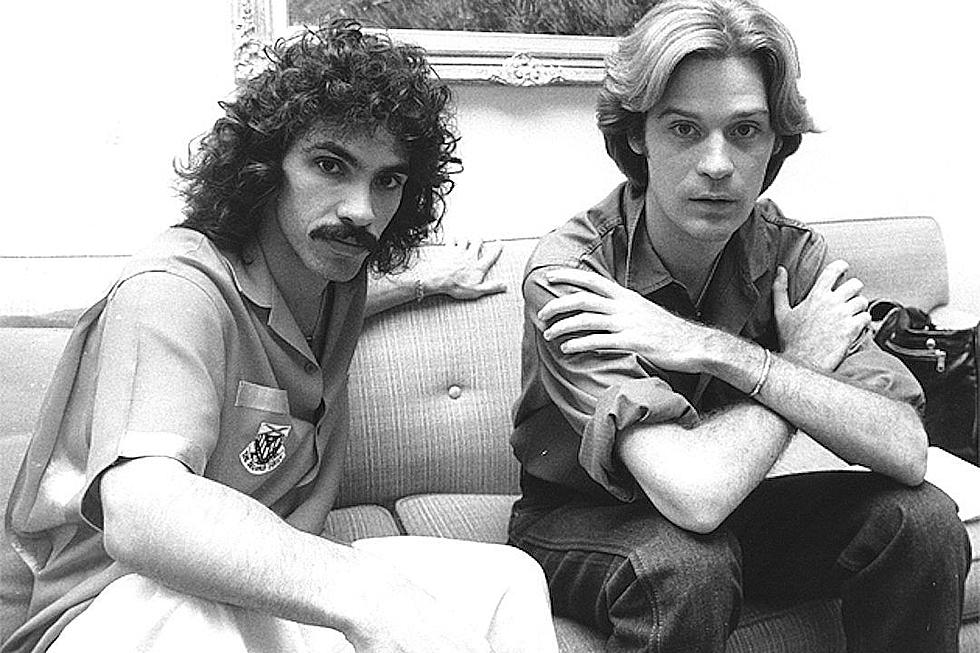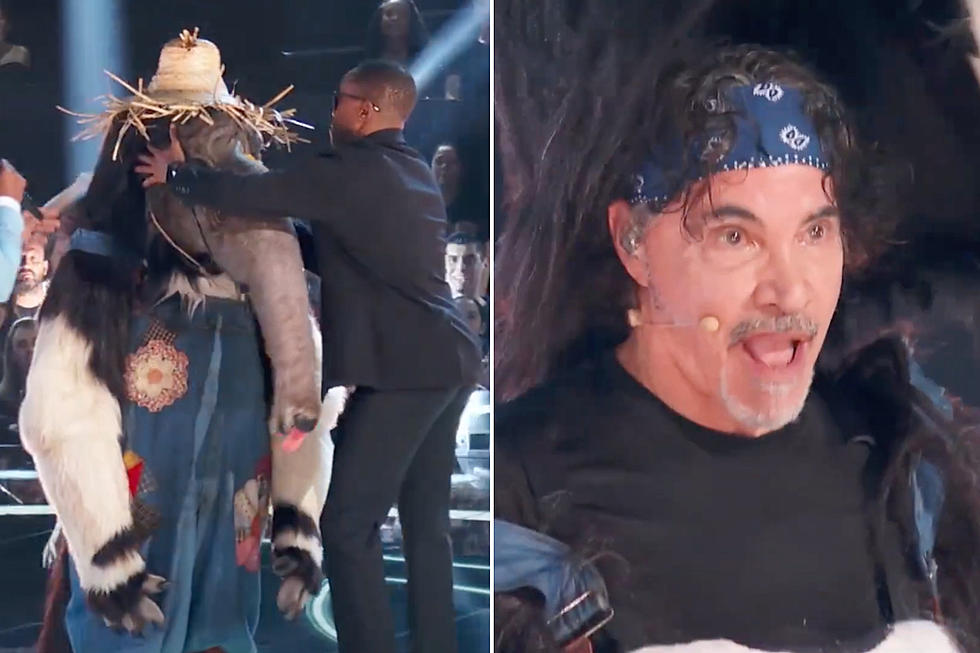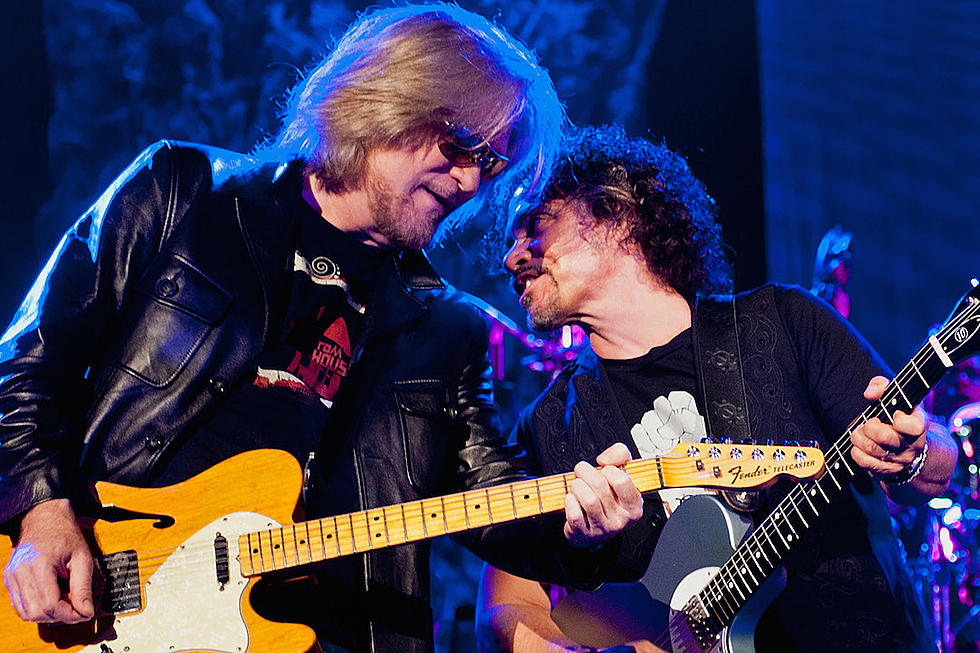
How Hall and Oates Ended an Era with ‘Change of Season’
Throughout their spectacular run of hit singles in the '80s, Hall & Oates took full advantage of emerging technology, applying layers of synths and programmed rhythms to their rock/soul hybrid sound. But by the end of the decade, they were ready for a change.
That restlessness manifested itself on the duo's 14th studio album, the suitably titled Change of Season. Arriving in stores Nov. 13, 1990, it signaled an abrupt shift away from the heavy production they'd favored as recently as 1988's Ooh Yeah! Although it happened to arrive in the midst of an acoustic boom helped along by the popular MTV Unplugged series, Hall & Oates insisted they were simply heading back to their roots after riding the crest of pop stardom as far as it could take them.
"That was another phase," Daryl Hall said of their big-sounding '80s records in an interview with the Philadelphia Inquirer. "That's been done to death. Change of Season is more introspective."
"We wanted to shed that pop star thing, because we never really were comfortable with that," John Oates told UCR. "I’m glad it happened — we embraced it — but it was never really representative of what we were about, and Change of Season was an important album for that reason. It was us saying it was time to make a change, to move on. That really set the tone for how we’d go forward from the future."
Although Change of Season was billed as a back-to-basics affair, the truth is more complicated. A cursory glance at the liner notes reveals that a small army of producers, engineers, programmers, and musicians were brought to bear on the track listing — a portion of which, deviating from recent Hall & Oates tradition, came from outside writers. The end result, while certainly far less produced than Ooh Yeah! or 1984's Big Bam Boom, is still a record very much of its time, with stacks of synths and drum programming blended in between the acoustic guitars.
"John and I had not done anything much together for a couple of years. It usually happens after I do some kind of solo project and I move away from things and go in another direction. Then we come back and when we come back, a new direction is formed," Hall told UCR's Matt Wardlaw.
"That particular one, I think we had explored the technological side of recording a lot in the ‘80s, moved through Big Bam Boom and the Ooh Yeah! album, which were technologically making use of a lot of available things that were newly available in the ‘80s," Hall added. "Then we said, 'Uh, enough of that — let’s go back and do a more organic album,' and that’s what Change of Season is. I think it was a shift back into that and the first of a sort of combination of this organic thing and then using technology as tools that has been our trademark separately and together ever since then."
The album's first track and leadoff single, "So Close," offers a sort of microcosm of the approach taken for Change of Season in general. Although the album closes with an acoustic version of the song, penned by Hall and frequent John Mellencamp collaborator George Green, the single and "official" track boasted bigger production — and an altered arrangement — courtesy of Danny Kortchmar and Jon Bon Jovi.
"George Green was a Nashville writer and he gave me this lyric. I don’t know who he was friends with or how he got to me, but all he wrote was the first verse and the words 'So close / Yet so far away.' That was all he wrote," Hall told UCR. "I took that idea and I don’t know why I did, but I was inspired to do so, and I wrote the bridge and then I wrote the last verse and put this whole thing together. I love that song. It’s still one of my favorite songs we’ve ever written. It’s the only time I ever really did something like that, where I had an outside lyricist submit a piece of a lyric and I went to the band with it."
Watch the Video for 'Don't Hold Back Your Love'
After cutting his version of "So Close," however, Hall found himself faced with a mandate from Clive Davis, president of the duo's label at the time, Arista. Davis, convinced "So Close" could be a hit if they gave it enough polish, sent Hall and Oates back into the studio with Kortchmar and Bon Jovi — and a mandate to deliver something that sounded more like a single.
"That was my last go-around with the music business powers that be. I really walked away from everything after that. You know, on that record, Clive Davis made me record 'So Close' twice," Hall told UCR. "I had this beautiful arrangement, which is on the record, and he made me go in, literally forced me to go in and cut some ridiculous version of the song with Jon Bon Jovi and I hated it. He put it on the record and I said, 'The only way I’m even going to allow you to put this on the record is if you put my own original version on there, because that’s the way the song is supposed to sound.' There it is. That’s the ultimate version of interference. I was quite unhappy about that."
If Hall and Oates had to make commercial concessions with Change of Season, they were faced with far fewer when it came to the tour, which they dubbed Acoustic Power and set up in a fashion not altogether different from the early episodes of MTV Unplugged, with a homey stage setup and an expansive set list that made room for new acoustic arrangements of songs plucked from throughout their catalog. It was a process that proved instructive for the duo, allowing them to look at some of the biggest hit singles of the '80s in a fresh musical light.
"I had to rethink them, look at them in pure form, just the chords and melody and that kind of thing. I had to rearrange them, and in doing that, I was really surprised how much continuity there was from very early Hall and Oates through our middle period to the present," Hall told the Orlando Sentinel.
"If you listen to the records, you hear a lot of changes, but they're really on the surface — the arrangements and the technology we used more than the songs themselves," Hall added. "It's all cut from same cloth. Every song we tried worked, and there wasn't one exception. To give an example, in concert we do 'Abandoned Luncheonette' and 'No Can Do' back to back, and they work seamlessly."
Yet if Change of Season and the Acoustic Power tour offered a measure of liberation from Hall & Oates' pop-star past, it came with a price. After nearly 20 years of working side by side, the duo — only recently returned from a three-year mid-'80s hiatus — knew their days as a working recording act were coming to a close.
"The essence of our working relationship hasn't changed over the years. We collaborate the same way and for the same reasons," Oates told the Inquirer. "The only change has been with our personalities. A decade ago, we were wrapped up as Hall & Oates and our career. The individuality was defined as part of the group. You'll see more solo projects from each of us in the future."
That statement proved prophetic, as Hall and Oates would spend the bulk of the '90s apart. Hall released a pair of solo albums, both of which took a far more modern R&B approach, while Oates moved to Colorado and, in his words, "rode a bike for a year." Although they'd go on to release new LPs, subsequent albums of original material have been few and far between, and over time, it's become evident that their main interest is now performing catalog material in concert.
"You know, nobody wants to be half of something. Especially as you grow up," Hall told UCR. "We’re individuals and we have our own agendas and objectives, both creatively and personally. So I think we reached the point where we enjoy working together – we still do – and we enjoy playing the songs that we made together, which we still play. But we also prefer to be separate people, and that’s why we don’t put out Hall & Oates records anymore. That’s why what I do is what I do and what he does is what he does. We come together with the songs that we have created together."
"What you saw on Change of Season was two guys who’d been working together for a long time, and were embarking on their own separate ways, but still working together," added Oates. "That really set the tone for everything we’ve done from that point until today: two individuals who enjoy working together, but don’t necessarily see themselves as being joined at the hip. That was the evolution, and quite frankly, I wouldn’t be working with Daryl right now if we hadn’t made that separation. At the same time, we have a mutual respect. I think it’s very unique."
Top 100 '70s Rock Albums
More From Ultimate Classic Rock









